- Challenging traditional French hegemony, Russia approached former African colonies, sparking the desire for more freedom and autonomy in relation to France;
- With the expansion of Russian influence in ‘Françafrique’ through hybrid warfare, Paris received several requests to withdraw its troops from the region;
- In response, France adopted a retaliatory approach, seeking to expand its influence in territories historically aligned with Moscow.
In a plot full of political intrigues and strategic interests, France seems to seek a vendetta, that is, retaliation against Russian interference in its African sphere of influence. Moscow’s increased influence in the region, through the Wagner Group (and now Africa Corps), has caused a decline in French influence, evidenced by the withdrawal of its troops from countries such as Niger, Burkina Faso and Mali.
However, France does not remain passive in the face of this advance, retaliating with a series of initiatives aimed at undermining Russian interests in territories historically aligned with Moscow in Eurasia, such as Armenia, Kazakhstan, Ukraine and Uzbekistan. This contest is not just a battle for influence, but a struggle for prestige and global power, the consequences of which could reshape the balance of power beyond Europe.
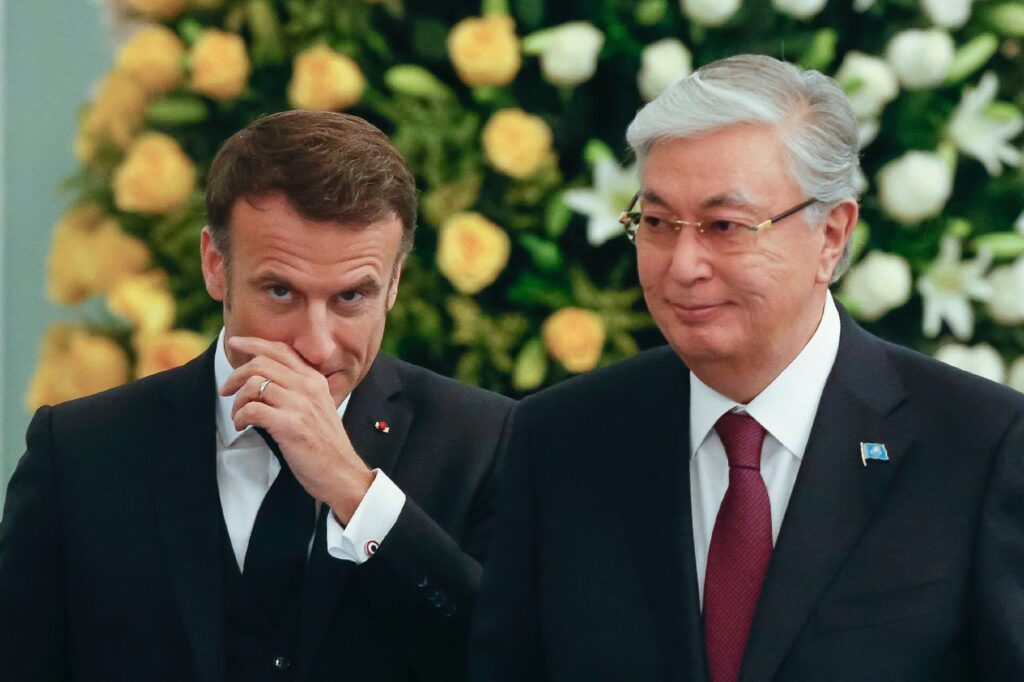
“Françafrique”: Understanding the Web of Relations Between France and African Countries
There was a period after the Second World War when France sought to maintain its influence over African countries in a less overt manner than during colonialism, when Paris directly controlled these nations.
The term “Françafrique” originated from the expression “France-Afrique,” used by the first president of Ivory Coast, Félix Houphouët-Boigny, in 1955, to describe the close ties between his country and France.
Later, in 1998, François-Xavier Verschave pejoratively renamed this concept as “Françafrique” to criticize the alleged corrupt and clandestine activities of various Franco-African political, economic, and military networks, also known as French neocolonialism.
This strategy aimed to ensure access to the natural resources of the African continent, especially oil and uranium, while keeping leaders favorable to France in power and protecting French interests in the region. Jacques Foccart was a central figure in this scheme, acting as a coordinator of French interests in Africa.
Some examples of French interests in African countries include:
- Ivory Coast: It was considered the jewel in the crown of “Françafrique” due to its political stability and relatively prosperous economy. France saw Ivory Coast as a crucial ally to secure access to natural resources, especially cocoa and oil.
- Senegal: It was one of the first African countries to gain independence from France in 1960. However, the close relationship between Senegal and France remained important, especially due to Senegal’s strategic geopolitical position in West Africa – its coastal location provides privileged access to the Atlantic Ocean, facilitating maritime trade and control of shipping routes – and military cooperation between the two countries.
- Cameroon: It also played a significant role in the “Françafrique” strategy due to its strategic location in Central Africa – bordering several countries in the region – and its production of resources such as oil and natural gas.
- Gabon: It was one of the African countries closest to France, with a relationship dating back to the colonial period. France had significant economic interests in Gabon, especially in oil exploration, and maintained a strong military presence in the region to protect these interests.
- Mali: After Mali’s independence in 1960, France continued to play a significant role in the country’s politics and economy. French military presence in Mali increased due to concerns about terrorism in the region, but also reflected France’s historical and economic interests in the country.
- Niger: It was one of the colonies of French West Africa and gained independence in 1960. The country plays a significant role as a supplier of uranium to France, being one of the largest exporters of the metal in the world, which is essential for use in nuclear power plants.
However, over time, criticisms of “Françafrique” emerged, with many Africans realizing they were being exploited and manipulated.
Independence movements and nationalist leaders challenged French influence, although the established web of relations was difficult to unravel.
The End of an Era: France’s Decline in West Africa
The year 2023 marked a significant decline in France’s influence on the African continent, especially in its former colonies.
The withdrawal of French troops from some countries, combined with the suspension of diplomatic relations and additional restrictive measures, signaled a shift in the power dynamics of the region.
France’s diminishing power in Africa can be exemplified in these cases:
- Niger:
- A military coup in Niger in July sparked tensions between France and the military junta.
- France initially resisted the junta’s demands to remove its troops but eventually agreed to the gradual withdrawal of 1,500 soldiers by the end of 2023.
- The withdrawal of French troops was accompanied by the abrupt end of France’s diplomatic presence, with the withdrawal of the ambassador, reflecting changes in power dynamics in the Sahel region.
- Burkina Faso:
- In January 2023, the military-led government in Burkina Faso intensified its stance by demanding the withdrawal of French troops from the country, while simultaneously moving forward with significant changes, such as a constitutional review aimed at elevating national languages to official status, relegating French to a working language position.
- Already strained relations between Burkina Faso and France reached a critical point after the coup that established a new government. This event precipitated the discreet withdrawal of French troops from the country in February 2023, amid a context of growing distance between the two countries.
- The withdrawal of French troops, occurring shortly after the change of power and the escalation of tensions, represents a crucial moment in the recent history of bilateral relations between Burkina Faso and France, especially amidst the implementation of constitutional changes reflecting a new linguistic and political dynamic in the African country.
- Mali:
- Since the military coup in Mali in 2020, relations between France and the military government led by Colonel Assimi Goita have been marked by increasing tensions. The coup resulted in the removal of elected President Ibrahim Boubacar Keita and the rise of the military government.
- In March 2023, tensions reached a new level when the Malian government decided to suspend the operations of French media in the country. This decision was made in response to allegations by the Malian government that French media was spreading false reports about the humanitarian and political situation in Mali. This measure further exacerbated the already tense relations between the two countries and also with the United Nations, which withdrew its mission from the country at the request of Mali’s Foreign Minister.
- Additionally, the French military presence in Mali has been criticized by some sectors of Malian society, who see it as external interference in internal affairs. This controversy surrounding the French military presence has contributed to an escalation in hostilities and tensions between France and Mali.
These events show that African countries are increasingly opposing the ways in which France used to control them, seeking more freedom and independence. This challenges the power that France has always had in the region.
But why is all this anti-French movement in Africa happening now?
The Wagner Group: Russian Strategies and Their Influence in Former African Colonies
Since the mid-2010s, the Wagner Group, a paramilitary organization (also considered mercenaries) with close ties to the Russian government, has gradually increased its presence in Africa, while Russia employs hybrid warfare tactics to expand its influence in the region.
This strategy involves a combination of military actions, such as deploying mercenaries and conducting secret operations, with non-military activities, such as propaganda, disinformation, and political influence.
For example, the Wagner Group is a Russian paramilitary organization that acts as a kind of “private army” in various regions of Africa, supporting local regimes and promoting Russian interests in the region.
At the same time, the RT media (a propaganda arm of the Russian government), despite being banned from the European Union, continues to operate in French-speaking African countries, disseminating a narrative favorable to Russia and discrediting Western powers, such as France.
To facilitate understanding of the events, it is essential to examine the occurrences in chronological order. Thus, one can observe a timeline illustrating the expansion of the Group on the African continent.
- 2014-2015: During the conflict in Ukraine, the Wagner Group gained prominence by being deployed in support of pro-Russian separatist forces. This experience serves as a model for its future operations in other regions, including Africa.
- 2017: The Wagner Group is detected in Syria, where it plays a crucial role in military operations in favor of the government of Bashar al-Assad. Its actions demonstrate Russia’s ability to project power beyond its borders through paramilitary groups.
- 2018: The Wagner Group extends its presence to the Central African Republic, providing security for the local government in exchange for concessions of natural resources. At the same time, Russia intensifies the use of state media, in this case, RT in French known as RT en Français or RT France, to promote its narrative and influence public opinion in African countries, as well as using violence to control and extort the country’s diamond mines.
- 2019: Reports indicate the presence of the Wagner Group in countries such as Sudan, Libya, and Mozambique, where its activities are aligned with Russian geopolitical interests in the region. Meanwhile, RT intensifies its coverage in Africa, targeting French-speaking African audiences.
- 2020: The Wagner Group expands its operations to former French African colonies, such as Mali and Burkina Faso, challenging France’s traditional influence in the region. At the same time, RT intensifies its presence in Africa, despite being banned from the European Union.
- 2021: France seeks to reformulate its strategy in Africa to counter the growing Russian influence but faces challenges in the face of Russia’s hybrid warfare tactics. Meanwhile, the Wagner Group and RT continue to expand their presence and influence in the region.
- 2022: The Wagner Group consolidates its presence in the region and negatively influences public opinion about France’s presence in the region. At the same time, RT continues to promote the Russian narrative and challenge Western influence in Africa. Mercenaries associated with the Wagner Group also face accusations of war crimes, abuses, and interference in conflicts in the Central African Republic and various regions of Africa, including Mali, Libya, Chad, Sudan, and Mozambique. Additionally, there are reports of similar activities in Syria, Venezuela, and Ukraine.
- 2023: The influence of the Wagner Group and RT in Africa is significant, strongly influencing the withdrawal of French troops from Niger and Burkina Faso, while France intensifies its diplomatic efforts to contain Russian expansion. However, Russia’s hybrid warfare tactics present major challenges to French efforts.
In 2024, the situation in Africa seems to still be in a transition of alliances, with the balance of power in the region at stake.
France continues to face difficulties in containing Russian influence, while the Wagner Group and RT continue to expand their operations in the region, using a combination of military force and information warfare to achieve their geopolitical objectives.
Unraveling French Revenge: Retaliation Against Russian Intervention in Africa
Considering Russia’s encroachment into the French sphere of influence, Paris is adopting a similar approach to Russia’s to engage with Caucasus and Central Asian countries, which are within Moscow’s sphere of influence, as a form of provocation.
This plan includes initiatives aimed at strengthening ties with countries in the region and thereby expanding its influence, taking the place of Russia.
The first countries to be approached by the French strategy are:
- Armenia:
– Military Cooperation: France is intensifying its military cooperation with Armenia, providing advanced military equipment such as night vision goggles, assault rifles, and possibly short-range Mistral missiles. These agreements underscore France’s commitment to supporting Armenia’s defense, especially amid tensions with Azerbaijan, even after the end of the Nagorno-Karabakh war, won by its rival.
– Diplomatic Presence: The visit of the French Defense Minister to Yerevan, the capital of Armenia, demonstrates France’s interest in strengthening bilateral ties and offers a platform for France to influence regional affairs.
– Strategic Alliances: France seeks strategic alliances with Armenia, a country that was “abandoned” by Russia during the war with Azerbaijan. By strengthening ties with Armenia, France is effectively challenging Russian influence in the region, as well as Azerbaijan’s influence, which is concerned about the increased French presence in the region, fearing it may lead to a new escalation of tensions.
- Kazakhstan:
– Economic Diplomacy and Energy Cooperation: France is seeking to strengthen its economic ties with Kazakhstan, a key country in Central Asia, through trade agreements and investments. Kazakhstan is an economic powerhouse in the region, and Paris is interested in exploring cooperation opportunities in sectors such as technology, agriculture, and energy, developing its renewable and sustainable energy resources.
– Geopolitical Influence: Kazakhstan is an important ally of Russia, and the growing French presence may undermine this alliance.
- Uzbekistan:
– Economic Cooperation: France is seeking opportunities for economic cooperation with Uzbekistan, another key country in Central Asia. This includes investments in sectors such as infrastructure, transportation, manufacturing, and tourism. Uzbekistan has a growing market and is seen as an attractive destination for foreign investments.
– Strategic Partnerships: Uzbekistan is strategically important in Central Asia, and France is interested in strengthening its ties with the country to expand its geopolitical presence in the region. This may include cooperation on regional security issues such as counterterrorism, drug trafficking, and political stability.
– Challenge to Russian Influence: Uzbekistan has historically maintained close ties with Russia but is seeking to diversify its international relations. The increasing presence of France may complicate Russia’s position in the region.
- Ukraine:
– Military Support: France is seeking to offer greater support to Ukraine in its war against Russia. This includes supplying military equipment, troop training, and technical assistance to strengthen Ukrainian defense capabilities.
– Political Cooperation: In addition to military support, France is strengthening its political ties with Ukraine, seeking ways to increase diplomatic pressure on Russia and promote a peaceful solution to the conflict. This includes active participation in international forums and multilateral organizations discussing the situation in Ukraine, as well as seeking bilateral partnerships to promote stability and security in the region.
– Challenge to Russian Influence: The intensification of French support for Ukraine can also be seen as a direct challenge to Russian influence in the region. Russia views Ukraine as part of its sphere of influence (or even as part of Russia itself) and has sought to maintain control over the country through massive military invasion (and attempted occupation and annexation) and constant military support to separatist groups. Therefore, increased French support for Ukraine may undermine Russian efforts to maintain its dominant position in the region.
– European Solidarity: France is acting in line with other European countries that have also shown support for Ukraine, both politically and militarily. This is part of a broader strategy to promote security and stability in Eastern Europe and challenge Russian expansion in the region.
It is certain that Russia may see the French presence in the region as a threat to its geopolitical and security interests.
This could lead to a reaction from Russia, including measures to bolster its own influence in the region and discourage the expansion of French influence, even as it does the same in West Africa.
Why is the dispute between France and Russia for regional influence geopolitically important?
In this power struggle between France and Russia for regional influence, it becomes clear that both countries are engaged in a complex game of geopolitical chess.
However, as this rivalry intensifies, it is important to recognize not only the immediate ramifications for the countries involved but also the broader implications for the world order.
By expanding its influence in Russia’s vicinity, France not only seeks to strengthen its own position as a global power but also challenges the influence previously established by Moscow, positioning itself in relation to other powers, such as China, that also exert influence in the region.
On the other hand, Russia seeks to protect its own interests by expanding its influence in “French Africa.” However, this presence brings a range of potential harms, including support for autocratic regimes, fostering instability through disinformation campaigns, and the use of the Wagner Group (now Africa Corps), which is involved in illicit activities and human rights violations in various African countries.
Thus, the dispute between France and Russia for regional influence is not limited to national interests but has ramifications that affect the stability and balance of the international system.
The escalation of these rivalries could result in an escalation of regional tensions and even an increase in proxy wars, contributing to instability and conflict in various parts of the world. However, it is a dangerous game, especially when played by two nuclear powers.
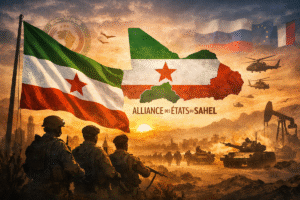
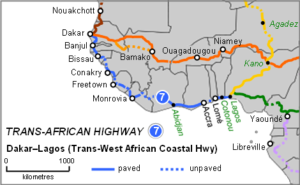
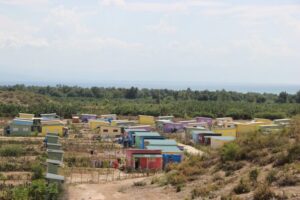
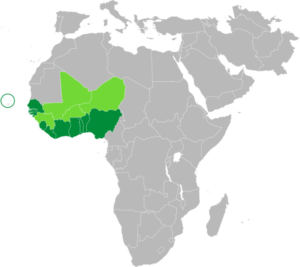


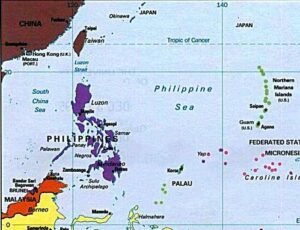
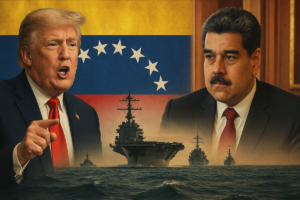
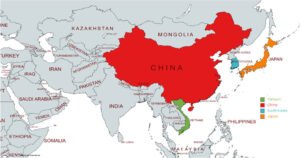
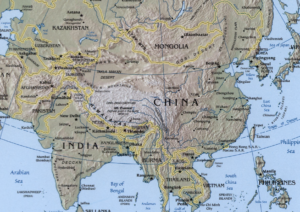
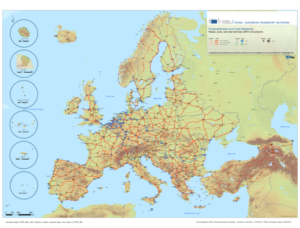



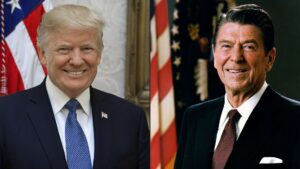
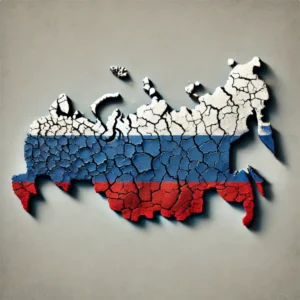
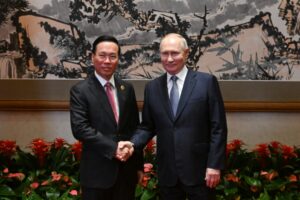
Be First to Comment